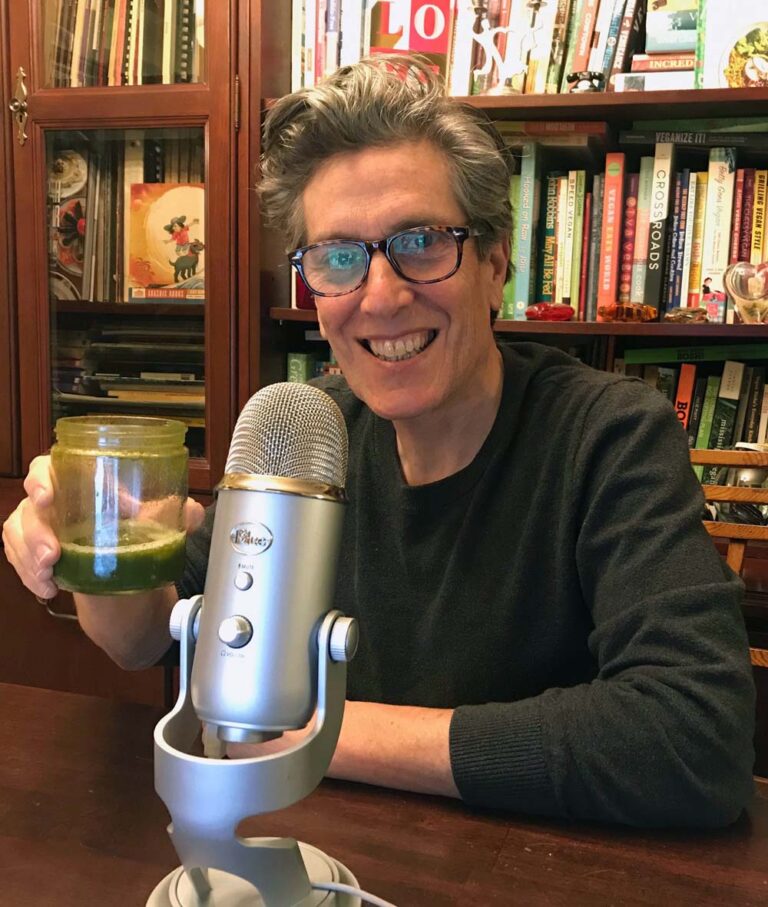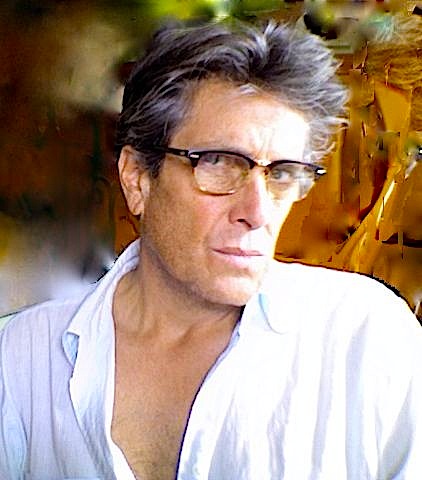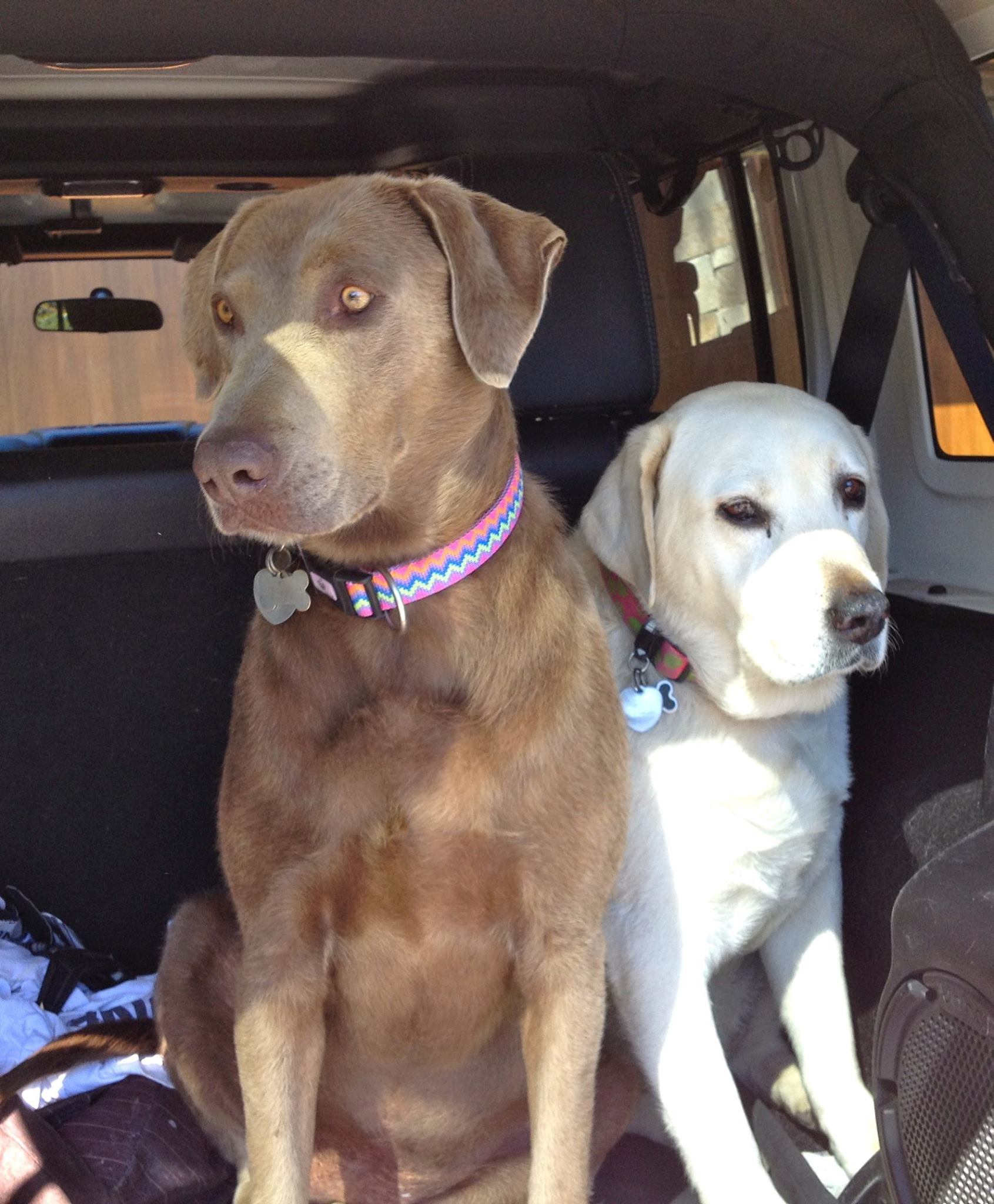WELCOME TO THE THEATRE

CHAPTER 1 – “MR. C and ME”
Mr. C was my first drama teacher. His annunciation and articulation were intimidating and elegant. He was both instructor and mentor to the students in his classroom, and when he wanted your attention he projected and rarely yelled.
The walls would rattle as would the three little bones in my inner ear when Mr. C spoke. The tenor of his voice drew me to him and made me want to know more about what he had to say. “There’s a difference between projecting and yelling,” he’d shout. “Yelling requires passion and raw emotion and god knows the theatre is full of passionate self-indulgent souls who burnout and end up teaching drama to a bunch of runny noses who think they’re going to get an easy grade. Projecting requires self-control and training and work and craft and art! All of which you will be expected to learn in this class!”
Mr. C had longish hair with streaks of gray and a goatee, which was cool and unusual for a male teacher of that era, most were clean shaven with crew cuts that complimented their red necks, furrowed brows, and Nixonian jowls. Mr. C looked and sounded like he should be teaching at a college, not at Roosevelt Junior High School.
Mr. C seemed to always be in control of his facial expressions. There was a calmness to his melancholy. He reviled rudeness and was approachable only if one was polite.
Mr. C said that manners should be studied if one is to be an actor. “Does your character wipe their runny nose on their sleeve? If so, your character is lazy and they are probably a member of this drama class.” He smiled after saying something witty immediately followed by a concerned frown before continuing, “Does your character carry a handkerchief? If so, they will never be found in this drama class.” He’d then get a twinkle in his eye when he was about to say something mischievous. “However, if the hankie is sticking out of their back pocket and is colorful…well, that’s another class all together.”
Mr. C lectured about Shakespeare and Shaw and Santana— “Carlos Santana is a brilliant musician and poet! Let us now recite the words to “Evil Ways” trippingly on the tongue!”
Mr. C always seemed to be fascinated and amused by the blank stares he’d receive from his students. Of course, I was the exception, my body language both projected and yelled, “I WANT TO HEAR EVERY ONE OF YOUR CARESSED CONSONANTS, MR. C! I WANT TO LEARN! TEACH ME!”
Mr. C took me aside one day and said, “You’re a good actor, but you should also direct.” And as hundreds of little heart shaped soap bubbles started popping around my head I said, “You think I’m a good actor?”
Romeo and Juliet was the first play I was to direct in Mr. C’s drama class. I was 13 and the Franco Zeffirelli film was playing at theater downtown, I must’ve seen it five times. I asked a friend at school if she’d like to see the film with me. She played the clarinet in the band. I played the drums. She was quiet. I was loud. As far as I was concerned, this was a date. As far as she was concerned, this was not a date. We took the bus. I bought a pack of cigarettes from a shiny machine in the theater lobby that had a large red sign reading: NO MINORS. She was not impressed. During the film I asked my reed playing friend if she’d like to smoke and play Juliet in my play. She said no to both.
No one seemed to want to be in my R&J. They preferred to— “STRIKE! STRIKE! STRIKE!” To walk out of class in protest of the Vietnam War and in solidarity with Caesar Chavez and the United Farm Workers Union. “BOYCOTT SAFEWAY! BOYCOTT GRAPES!”
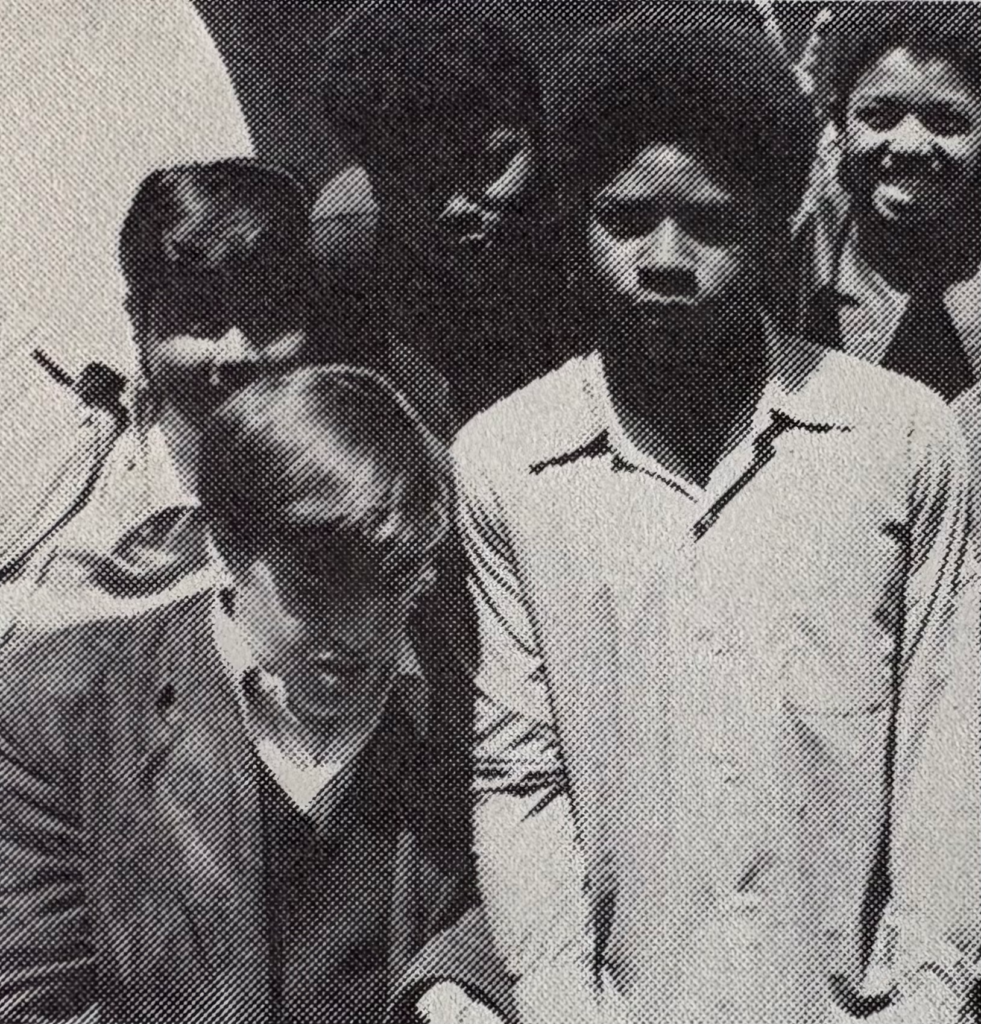
One STRIKE-day, instead of walking out with my friends and heading to the local state college to join a campus protest, as was de rigueur of a self-respecting ‘Roosevelt Rough Rider’ circa 1969, I went to Mr. C’s drama class. He was alone and sitting behind his desk. “No one wants to act in my play,” I whimpered. And Mr. C stood up and said, “Well then, direct it on paper! Go to the public library and read every book on directing and acting and theatre! Read them all, especially the text books! If there are exercises at the end of the chapters, do them! This will take you the rest of your life so you’d better get started!” Mr. C’s voice wrapped me in a warm blanket of care and concern and brought back those little heart shaped soap bubbles and as they started popping around my head again I said, “Mr. C, you’re yelling.”
At the public library, I found books on directing and acting and writing and playwrights and their plays and many technical theatre books. I not only directed R&J on paper, I designed the set and made a cardboard model and played all the characters as I blocked the scenes with little paper cutouts. I learned about iambic pentameter and sketched the costumes with colored pencils and shopped for fabric swatches. I created the lighting and learned the differences between a Fresnel and an ellipsoidal. I experimented with grease paint and pancake makeup and latex and flexible and non-flexible Collodions and how to apply crepe hair directly to the face with spirit gum and why it’s called down stage and not upstage and house left and not stage left. I read biographies on great theatre makers and learned why one should never whistle backstage and what to do if someone says the name of The Scottish Play in the dressing room— 1) Leave the theater immediately 2) Turn clockwise three times 3) Spit over your left shoulder 4) Say aloud, “Lord what fools these mortals be!”
CHAPTER 2 – “TO BEAT, OR NOT TO BEAT”
The impossible dream of a life as a successful performing artist had been my north star long before Mr. C’s eighth grade drama class. My quest to follow that star no matter how hopeless no matter how far brings us right up to the present moment where I’m once again trusting my inner monologue as a remedy for writer’s block, all the while grateful to have a copy of Howard Zinn’s, The People’s History of the United States, dogeared for quick reminders that there’s nothing new about civilized societies— built on murder— thrown into chaos by despots destroying communities in the name of law and order. I’ve known this since reading Lord of the Flies which branded my young heart with the burning question: Is hate inherent? This was not long after evil shot JFK, which was when the Daughters of the Charity of St. Vincent De Paul gave my class an unscheduled recess so we could go to Mass and light candles in front of a sculpture of a mother holding her dead son. I remember this because it was also the day altar boys were found in the vestibule puffing on Father O’Leary’s cigar.

PHOTO: Easter Sunday (L to R – Me, Mom, Sister Deb, Cousin Theodora, Dad, and the little guy is Brother Mark)
My first memory of sitting in a darkened theatre— that wasn’t called a church— was when my family went to watch cousin Theodora perform a principle role in her high school play, Murder in the Nunnery. The irony that this was an all-girls Catholic school doing a murder mystery set in a convent school was not lost on me then. A play performed by actors pretending to be nuns in front of an audience of actual nuns was a delightful introduction to the power of theatre catching the consciousness of the king, or in the case of Murder in the Nunnery, the mother superior sitting in the audience laughing her ass off. Cousin Theodora’s performance, along with a Rodgers and Hammerstein song played over and over again on my parents’ HiFi, not only answered my burning question about hate, but also about whether theatre can change the world.
“You’ve got to be taught to hate and fear,
You’ve got to be taught from year to year,
It’s got to be drummed in your dear little ear—
You’ve got to be carefully taught!
You’ve got to be taught to be afraid
Of people whose eyes are oddly made,
And people whose skin is a different shade—
You’ve got to be carefully taught.
You’ve got to be taught before it’s too late,
Before you are six or seven or eight,
To hate all the people your relatives hate—
You’ve got to be carefully taught!
You’ve got to be carefully taught!”
— Oscar Hammerstein, II
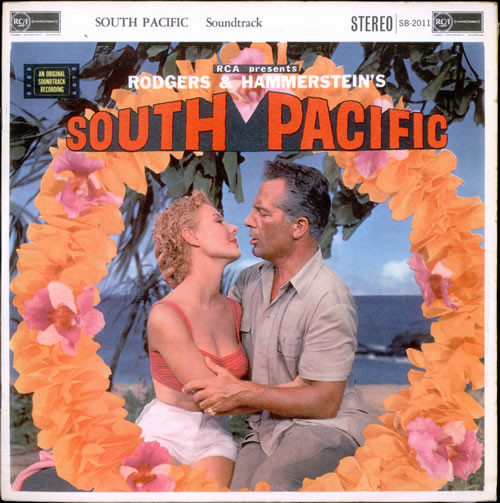
For as long as I can remember, my father used to say that I was A FRIGGIN CLOWN, and even though he said it in ALL CAPS, I considered it a compliment. Making people laugh— especially those who’ve come home from the Second World War— is serious business requiring great skill, and (wait for it) timing. And over the years I noticed that when Dad called me A FRIGGIN CLOWN it was right after he caught himself laughing at an imitation of one of his favorite Hollywood tough guys.
“Now listen here, sweet heart.” — Humphrey Bogart
“Mm…You…mmm, you dirty rat!” — Jimmy Cagney
“Nah, where’s your Moses now, nah!”— Edward G. Robinson
Dad’s stifled laughter was an encouraging sign that I should continue ACTING THE SCENES which was usually the line preceding A FRIGGIN CLOWN. My undeveloped brain further concluded that refining my natural abilities as A FRIGGIN CLOWN ACTING THE SCENES would require professional training, but for the time being, my eyes would remain fixed on the RCA Victor in the maple cabinet for direction.
Simultaneously with my desire to be the world’s greatest clown was to be a drummer of great renown, the caliber of which would make my dad smile like Ricky Ricardo smiled when Little Ricky played the drums on the I Love Lucy Show. For the time being, I could do the acting thing with just me, myself, and I— but drumming like Frank Sinatra’s portrayal of the hopped-up heroin addict Frankie Machine in The Man with The Golden Arm would require lessons. And the purchase of a drum set like the one Little Ricky played for his dad.
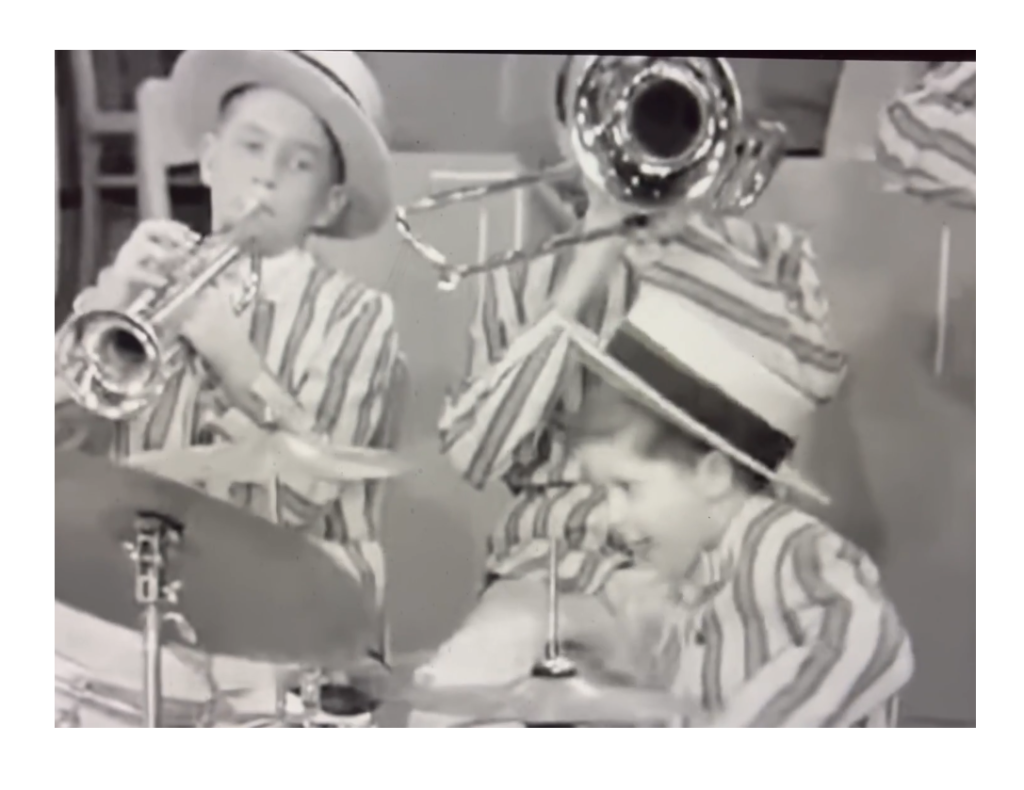
LittleRicky playing the drums for his dad.
My mother would always say that one of the reasons she took her children out of private school was because she wanted them to study music. Not counting the hymns played on the Hammond B-3 during Sunday services, the saint school we attended didn’t have an instrumental music program as part of their daily curriculum. Alas, the off-key liturgy sung in an ancient text wouldn’t be enough for my fashionable mother and her three modern children. So, at the end of 3rd grade, I left the mystical land of incense and Latin, for the more down-to-earth secular world of the San Jose Unified School District, where the arts and humanities were compulsory.

A photo found on the internet of the old Grant Elementary School in San Jose
Upon entering the 4th grade at Ulysses S. Grant Elementary School students were told they could start taking music lessons for free. And in doing so they’d receive an instrument, also for free. All we had to do was take home a piece of malodorous mimeograph paper with hand-drawn boxes next to the typed names of every musical instrument in the world, including way down at the bottom of the menu: DRUMS.
“Mom! Mom! Check this box and sign this form and have it on my desk by morning. That’ll be all, Mrs. De Mattei. You may go to bed now.”
And Mom said, “Why does this paper smell like wine? Have you been drinking?”
Unfortunately, the only musical instrument not on the take-home menu was a set of drums.
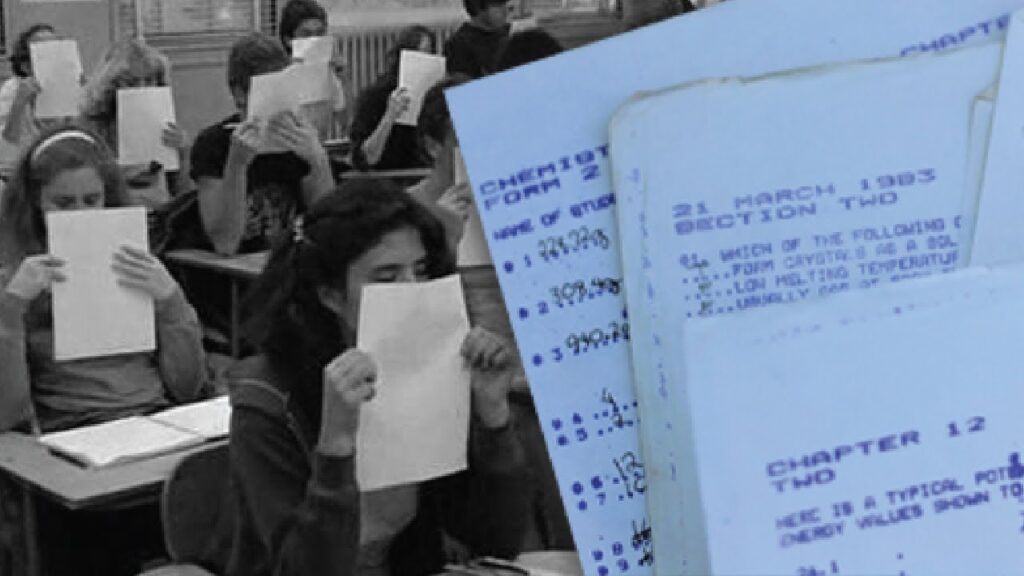
Photo from YouTube video: The smell of Mimeographs and Dittos – Life in America
Mr. D looked just like Herbert Anderson, the actor who played Henry Mitchell, the television father of Dennis the Menace.
Mr. D taught me how to read music and play rhythms with drumsticks the size of tree trunks on a small rectangle of black rubber glued to a piece of polished oak nailed at a 45º angle to another piece of polished oak—
“Left-right-left-right-mama-dada-mama-dada-flam-flam-flam-flam-a-diddle-flam-a-diddle-flam.”
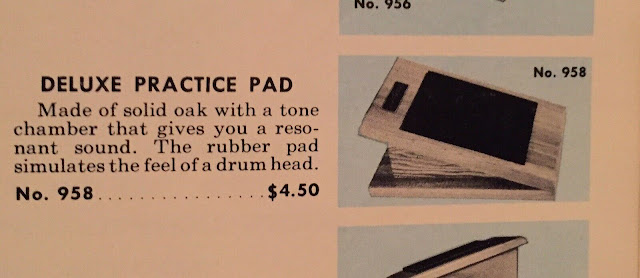
This piece of furniture was called a practice pad and it cost my parents $4.50 at the music store that was a few blocks away from the warehouse where my dad worked as a Teamster loading and hauling and unloading furniture 9 hours a day.
Dad’s job required him to look nice while breaking his back delivering living room sets and bedroom sets and dining room sets which is why one of my chores was to scrub his shirt collars with a bristle brush and powdered detergent. I learned early in life that elbow grease was the only way to remove ring around the collar.
Another one of my tasks was to iron his shirts which tickled my irony board (see what I did there) because Dad’s shirts were labeled “permanent press”. But mine was not to reason why, mine was but to scrub those dirty rings while ACTING THE SCENES LIKE A FRIGGIN CLOWN reciting the Wisk commercial over and over again.
•••
The music store was also near the tall building where my mother worked a forty-hour week in an office overlooking all of downtown San Jose.
I often write about Mom. I write about trying to remember how many times I stood next to her at her bedroom mirror watching her get ready for work. Not enough. I write about how she’d leave me notes, “When you get home from school put the roast in the oven.” I write about how I liked cooking for her. I write about the times I’d stop by her office on my way home from school just to see her sitting behind her desk, she looked like Natalie Wood in Love with The Proper Stranger. I write about how many times I hurt her feelings.
There was one day in fourth grade when my mom said she’d pick me up after school and to wait for her near the playground. Normally I’d walk home because she worked full-time but this particular day she said she was free and would enjoy spending time with me. I was anxious all day. Worried. After school I waited and waited and waited. It seemed like hours. It was probably only a few minutes. She finally drove up in our 1964 GTO convertible looking like Grace Kelly in To Catch A Thief. She was laughing when she said she was sorry for being late. I told her I never wanted to see her again. She let me drive her home with the top down. I felt like Cary Grant.
Many years later, I would learn that Mom wanted to name me Cary, after her favorite movie star. She actually wrote Cary on what I’m assuming was another mimeographed form she had to fill out that smelled like booze. When the nurse brought her the actual birth certificate it said Gary. When I asked her why she didn’t change it she said she was exhausted from giving birth. That makes sense, I do have a huge head. But then she said, she liked the name Gary too…because she liked Gary Cooper.
Much later in life, as an adult, I would have an argument with my parents and I wouldn’t speak with either of them for five years. Psychologists say that breaking our parents’ hearts when we are young is part of the “separation process”, which supports my current belief that humans are a poorly designed prototype who do more harm than good to one another and to the animals and to the planet so it’s probably best if we start phasing out the current model. I don’t know what psychologists say about breaking our parents’ hearts when we are older but it’s probably because some of us are just assholes.
Now that Mom is gone I’m one of those miserable old fucks who sits alone on Mother’s Day listening to her saved voice mails:
“Hi Dolly, it’s your mother, you don’t have to call me back, I know you’re busy, I just wanted to tell you I love you…(rewind)
“Hi Dolly, it’s your mother, you don’t have to call me back, I know you’re busy, I just wanted to tell you I love you…(rewind)
“Hi Dolly, it’s your mother, you don’t have to call me back, I know you’re busy, I just wanted to tell you I love you…(rewind)
•••
Displayed in the window of the music store downtown was a gold metal-flaked drum set that cost $300 hundred dollars.
“Dad, it’s a Ludwig! Ringo Starr plays a Ludwig. Can I have it?”
“HELL NO!”
As I mentioned, Dad spoke in ALL CAPS and he refused to buy his 9-year-old a Ludwig drum set because $300 in the 60s was, uh, I have no clue, but I bet it was a lot of money. Dad also enjoyed saying that I was a DREAMER and only went to school to EAT MY LUNCH and instead of coming home and doing my homework, I would ACT THE SCENES from war movies like The Longest Day, The Battle of the Bulge, and Hell is for Heroes— films introduced to me by my father — in my grandparents’ cherry orchard which was behind our house.
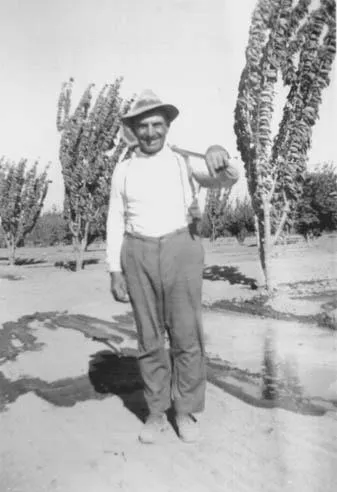
PHOTO: My grandfather in his cherry orchard.
Dad was right, I would go to school to EAT MY LUNCH because I made it and it was delicious. And there was always a good chance that it was a sandwich made of Dad’s barbecued chicken on French bread loaded with Miracle Whip, which was one of the higher priced spreads.
Growing up, Dad was my hero. He was my rock. I adored him. And he looked like Victor Mature in Samson and Delilah. He did everything I should’ve been learning how to do like mowing the lawn and washing the car and cleaning the house. Literally cleaning the house by hosing it down on a hot day because in summer IT KEEPS THE FRIGGIN HOUSE COOL. He’d also clean the inside of the house too. He had no problem doing the dishes, dusting and vacuuming. And he was excellent at chopping garlic and parsley for Mom’s meatballs.
Dad would see me struggling on Saturday mornings with the push mower and he’d nudge me out of the way and say, “LOOK OUT, LOOK OUT, I GOT THIS, GO ACT THE SCENES. DREAMER.” So, I’d go straight to my practice pad that, when placed on the ground of my grandparents’ cherry orchard, could also be used as a gas pedal for the Sherman Tank I made out of old prune boxes and a rusty irrigation pipe. My imaginary friends and I liberated France every day after school in that old tank.
Mom spoke in lower case so when she said a drum set was going to have to wait until I learned how to play, I had to lean in to hear her. And after she’d repeat the command, I’d dust off the practice pad and go to my room and—
“Left-right-left-right-mama-dada-mama-dada-flam-flam-flam-flam-a-diddle-flam-a-diddle-flam”.
Saturday mornings I would also take private lessons from a teenager named Phil on a drum set similar to the one in the music store window.
When Phil wasn’t giving the neighborhood kids drum and guitar lessons in his parents’ living room, he was playing Paul Revere and the Raiders covers in his garage with a bunch of teenagers who’d use masking tape to spell the name of their band on one another’s backs and then they’d go to the beach and get a sunburn so when they removed the masking tape the word SNARF glowed like a neon sign on their red blistering backs.
The first rock and roll song Phil taught me how to play was Under My Thumb. While I played the Charlie Watts beat, Phil played the Brian Jones marimba part and when I got really good at keeping time, he’d sing like Mick Jagger. Making music with Phil on Saturday mornings was when I first discovered the heart shaped soap bubbles popping around my head.
“Mom! Mom! Phil said a marimba is also a percussion instrument!
Phil said tympani, xylophone, glockenspiel, vibes, triangle, a woodblock, hub caps, a trash can lid, anything you can hit, even the outside of a piano, are all percussion instruments. I’m not just a drummer, Mom! I’m a percussionist! From this day forward please refer to me as “my son, Cary, A-FRIGGIN-CLOWN-ACTING-THE-SCENES-DREAMER-PERCUSSIONIST!”
To be continued.
